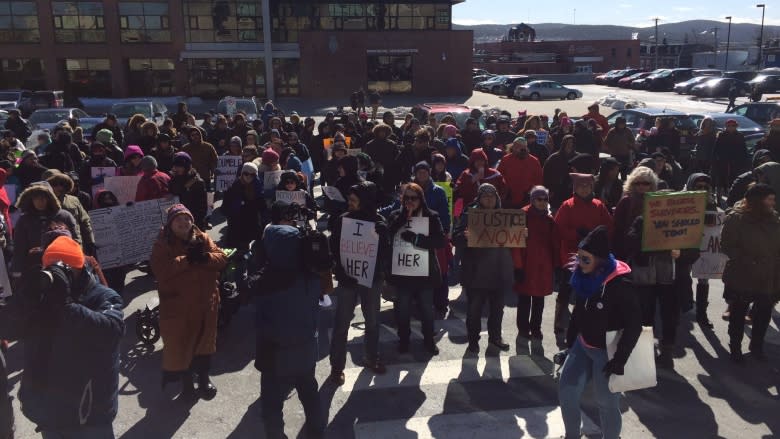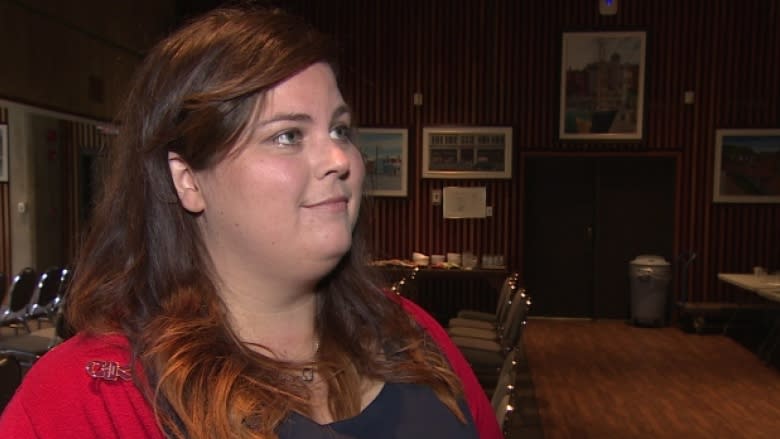Journey Project to bridge gap between sexual assault survivors and justice system
A province-wide, federally funded initiative is pushing to improve the way lawyers, police, judges, community groups and justice system personnel interact with victims of sexual violence.
The Journey Project is a three-year partnership — the first of its kind in Canada. It comes at a time when a number of high-profile sexual assault cases in the province, and the rest of the country, have sparked public outrage.
Creating a standard
It hopes to make the reporting and trial experience more positive, supportive and consistent for survivors.
"It could be just as easy as a person anecdotally mentioning that, 'When I got interviewed somebody got me a cup of tea, a blanket, slowed it down for me and called me the next day,'" Nicole Kieley, the executive director of the Newfoundland and Labrador Sexual Assault Crisis and Prevention Centre told CBC Radio's Labrador Morning.
"So those are not systemic changes," she said.
"Those are recognizing that when you have an opportunity within the judicial system to be supportive, to be centre to that person, and to offer positive responses, it's going to have an impact on how they feel moving forward."
The project isn't looking to change the threshold for a guilty verdict.
Kieley said asking victims hard questions is part of the process — but it's important to provide context when doing so. Explain why the questions are being asked, for instance, so the complainant fully understands what's happening and he or she doesn't feel blamed.
She said it's about creating a standard for when people come forward.
Supports for victims
The second side to The Journey Project is developing additional survivor-centered, trauma-informed supports for victims.
Those support elements will vary throughout the province's regions based on local circumstances.
"We're going to make sure we offer an inclusion lens to that," said Kieley.
"We know that individuals that are living with disability also are prone to more vulnerability of sexual violence, but sometimes are feeling the least served and represented when we look at programs and services related to sexual violence."
The gap
Kevin O'Shea, the executive director of the Public Legal Information Association of Newfoundland and Labrador agrees that sexual assault survivors face a number of "difficulties and obstacles and gaps" when entering the justice system.
"It can be everything from not having sufficient information or education about what that process looks like, a sense of additional wounding and revictimization that many people experience when they actually go into court.
"And they're testifying on the stand and facing cross examination questions — and dissatisfaction with the outcome of that process," he said.
"I think we're also recognizing that there's a gap between what those experiences are and perhaps the knowledge of personnel within the justice system to be able to address those needs, and to better support someone who's experienced sexual violence."
Starting in Labrador
The duo intends to travel throughout the province over the three years, starting in Labrador next month.
"What statistics have told us is that, for one thing, there are higher rates of sexual violence in Labrador and, on top of that, there is often less access to resources and supports in rural communities in general in the province," O'Shea said.
"Those two factors combined shows that there's an enhanced need."
The pair plans to engage community organizations when visiting different regions.
"We are a province-wide organization[s] but we're still based in St. John's and we need those key partners and champions on the ground in different communities to make this an effective project."



